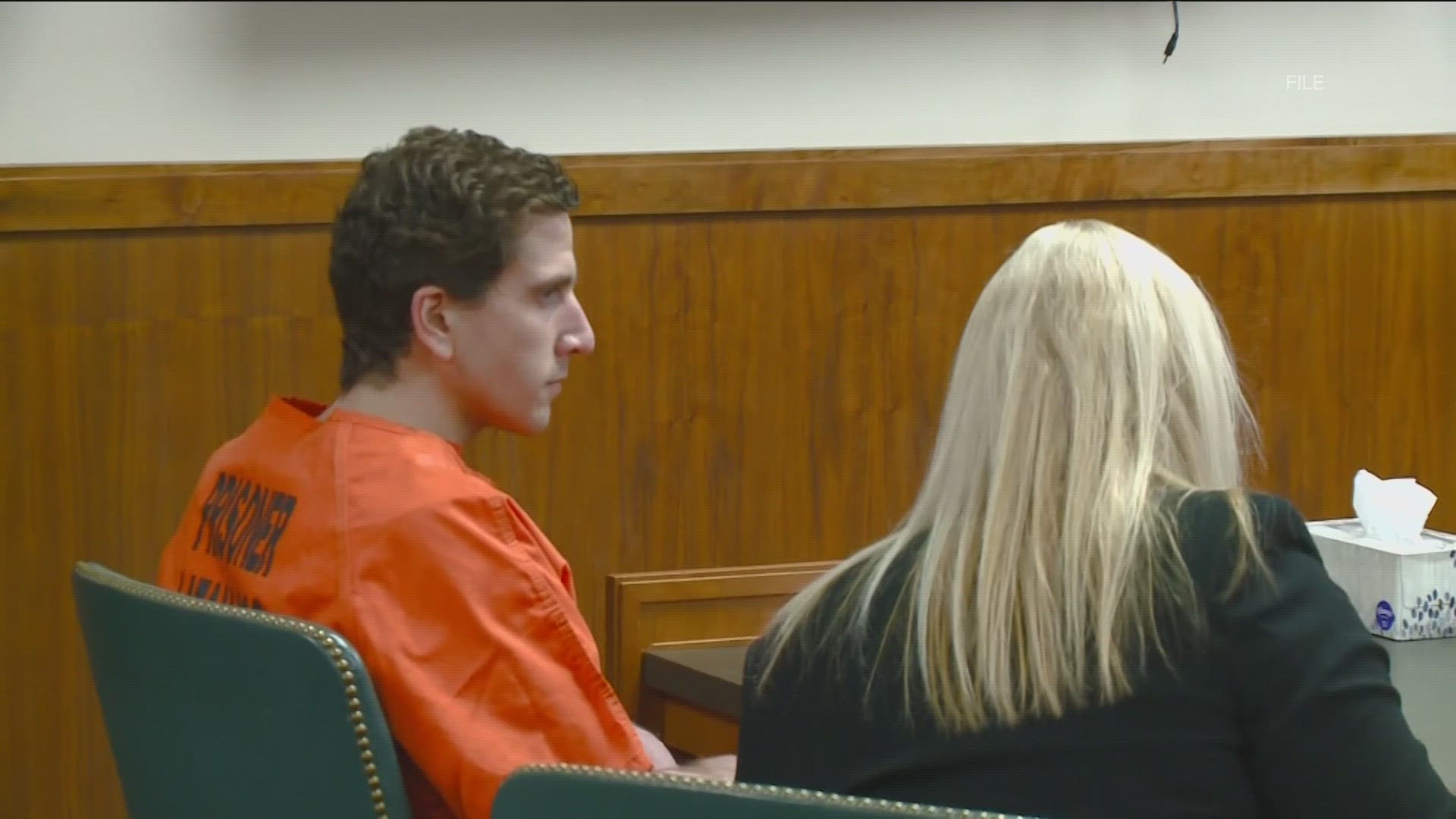MOSCOW, Idaho — Bryan Kohberger, the man charged with fatally stabbing four University of Idaho students last year, doesn't want cameras in the courtroom because of numerous social media posts made about him that over-analyze his body language, new court filings say.
Kohberger is going to trial on Oct. 2 of this year, permitted it doesn't get pushed back, for the killings of Ethan Chapin, Xana Kernodle, Madison Mogen and Kaylee Goncalves at a home in Moscow - and so far, a judge has allowed a pool camera and a photographer in every hearing.
But a brief filed on June 6 said Kohberger and his attorneys want more limited camera use in the courtroom.
In the brief, it says the audio and visual coverage of the case has "become material for news outlets and social media accounts to espouse their unfounded opinions" and each video attempts to analyze Kohberger's body language. Many TikTok and YouTube videos about Kohberger have received thousands or millions of views.
The brief states videos have described him using phrases like "cold iciness" and "filled with darkness and hate," comparing him to Lee Harvey Oswald in a story from the New York Post and calling him a "demon."
Kohberger's attorneys say that under the Sixth Amendment, he has a right to a fair trial, and more access to viewing Kohberger in hearings could unfairly prejudice the trial.
"When cameras are present in the courtroom, the defendant becomes subject to minute scrutiny as his or her every movement can be replayed and analyzed," the brief says.
The defense cites the barring of cameras in the Lori Vallow Daybell trial as an example of this, as the court said in her case that cameras were presenting an unfair focus on the defendant.
"The presence of cameras allows for the potential that the courtroom will devolve from a place for the victim, society and the accused to receive justice to a mere spectacle," the brief said.
In a brief filed June 6, the state argues, "the decision of whether to allow video or photographic coverage of the proceedings in this case is left to the sound discretion of the Court."
Attorneys are expected to argue their positions on cameras in the courtroom Friday - there are two hearings in regard to the gag order, which keeps people involved in the case from speaking about it to media.
The first hearing on behalf of the Goncalves' family attorney will take place at 10:30 a.m., and the second hearing on behalf of media outlets wanting the order vacated will take place at 1:30 p.m.
Watch more coverage of this story
Ongoing coverage of the University of Idaho investigation can be found in our YouTube playlist:

